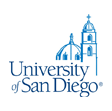The Journal of Contemporary Legal Issues
Abstract
Today, in academic and intellectuals circles it is a besieged minority that affirms that the freest, most prosperous, most self-critical societies in the history of the world have been bequeathed a patrimony worth preserving. We have lost a meaningful and robust sense of what constitutes the West as the West (in fact, the term itself has no real resonance with the younger generations). The “Other” in faraway places, to use a fashionable abstraction, is beyond criticism since cultural and moral criticism are in those cases de rigueur; but the appropriate response to the faults of rule-of-law societies in the West is an unrelieved self-loathing. As German bombs fell on London during the battle of Britain, the unclassifiable writer George Orwell argued in his admirable essay “The Lion and the Unicorn” that the British people were too residually Christian (and “decent”) to be taken in by totalitarian “power worship” and the left-wing intellectuals who indulged unsavory regimes and ideologies. Ordinary Englishmen still knew right from wrong, Orwell insisted. They could distinguish between legitimate British patriotism on the one hand, and the lupine imperialism of the Nazis and the systematic mendacity of the Communists on the other. A self-proclaimed democratic socialist and an unbeliever in matters of religion, Orwell was at the same time an unabashed patriot, a defender of the virtues of an imperfect Western world, and an eloquent critic of moral nihilism. Orwell and Winston Churchill agreed that our Western moral and civic inheritance was well worth preserving against both totalitarianism and the facile nihilism of the intellectual class, and that that precious inheritance owed a great deal to “Christian ethics.” Our patrimony included features that were at once liberal and conservative, features that were broader and deeper than electoral democracy and the “rights of Man.”
Today, that inheritance, inseparably liberal and conservative, is under fevered and systematic assault. The old verities and virtues—classical, Christian, and bourgeois—are attacked in the name of a liberationist or emancipatory ethic in which authority is reduced to authoritarianism, liberty is severed from law and self-restraint, and human relations are always and everywhere identified with “domination” and repression. In the antinomian theorizing of a Herbert Marcuse or Michel Foucault, and in the sloganeering of their much cruder and vituperative “woke” descendants, all traditions, institutions, and social practices, and even biological reality and the complementarity of male and female, are reduced to arbitrary—and oppressive—“social” constructions. An imaginary “liberation” requires the thoughtless and aggressive repudiation of everything that has been handed down by our forebears. The situation is grave. But how are our thoughtful and spirited defenders of ordered liberty to respond?
Volume
24
Issue
1
Start Page
81
Faculty Editor
Lawrence Alexander & Steven D. Smith
Recommended Citation
Mahoney, Daniel J.
(2024)
"The Forgotten Path of Liberal Conservatism: What Yoram Hazony Ignores,"
The Journal of Contemporary Legal Issues: Vol. 24:
Iss.
1, Article 6.
Available at:
https://digital.sandiego.edu/jcli/vol24/iss1/6

